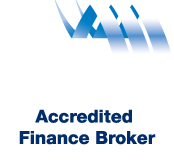Values-Based Finance Principles
Finance is often viewed as sitting somewhere on a scale between ‘icky necessity’ and ‘root of all evil’. It’s easy to see why. Throughout modern history we’ve seen the wealthy divide grow, and pressure on the lower class mount.
Australia’s financial literacy in schools is an embarrassment, and often parents can only teach their children outdated or misguided concepts about money management.
Suddenly you’re an adult and you’re expected to know stuff about things. You turn to Google, or books and podcasts, and you’re surrounded by old white men telling you how to invest your millions.
It’s confusing, it’s frustrating, it’s boring – too often, we just give up.
But money doesn’t always equal greed. Money can mean security, stability, opportunities, experiences, memories, and time.
Values-Based Finance is about discovering what your values are and then asking the simple question – Does this financial decision align with my values?
Firstly, what are Values?
Values tell us what feels ‘good’, what is important to us,
what we want to protect. Values are so unique to each person, like a
fingerprint, they’re really at the core of our identity.
A lot of couples will have similar values, what commonalities
drew you together, and where your values differ you may notice some friction.
Values can be passed down through generations, or perhaps as you grow older you
realise that your values are quite opposite to your parents.
Your own values can change over time as you grow and your
beliefs change with your experiences. Family might become more or less
important than friends. Time might become more or less important than money.
what do your values have to do with your finances?
When your actions align with your values, you create peace
in your life. That inherent sense of good that you feel when you close your
eyes at night.
Finance is embedded in our daily lives, in big decisions and
small. Grocery shopping, clothes, sports, weekends. Cars, homes, holidays,
weddings. It’s easy to get caught up in the mundanity of the small things, or
carried away with grandeur in the big things.
When you know what you value and your actions are
compatible, with practice, those decisions become automatic.
The first step is understanding your values and evaluating the connection to purchases or expenditure. Remember, there is no one size fits all approach.
So what does it look like in practice?
If Family is a core value, perhaps that translates to
working part-time to spend more time with them. Perhaps it means buying a home
so that you have security and stability in a space to call your own.
If you value Experiences foremost then perhaps your savings
are put towards an epic travel adventure instead of a house deposit. Or do you
buy a cheaper property in another suburb so that you keep a level of disposable
income.
If you value our Environment you might toss up whether a small farm plot suits you better, or whether you can align your values with your actions by using a socially responsible environmentally ethical ‘green’ bank.
Letting go of other people’s expectations and ‘shoulds’ will
let you examine what is important to you, and why. The right answer for you might look very different to the people around you.



